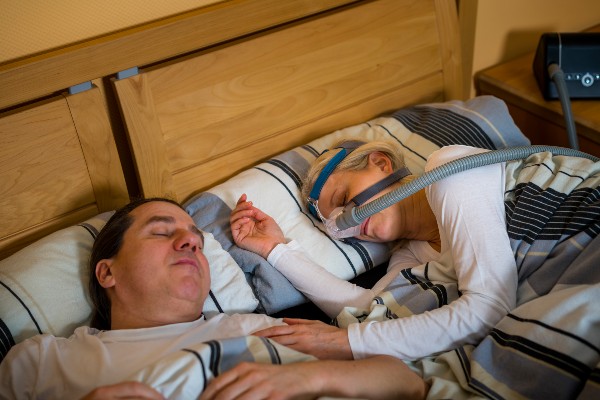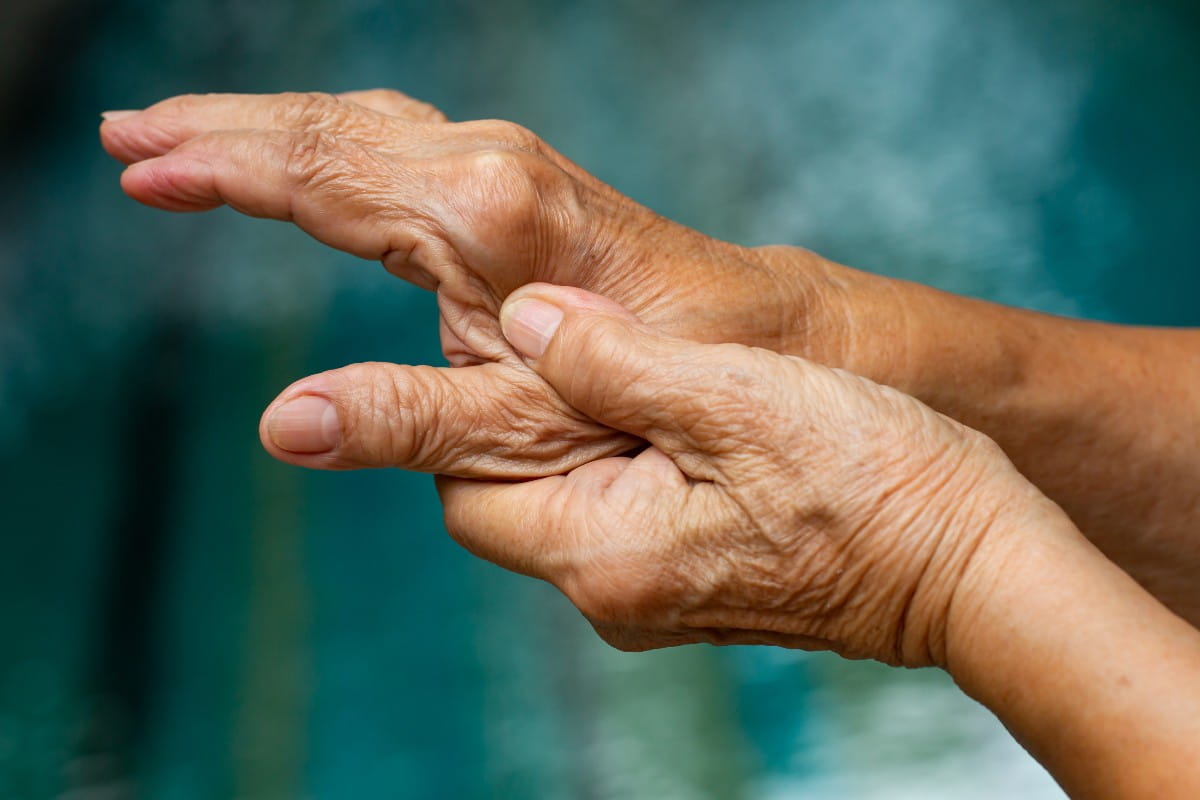Sleep apnea affects an estimated 18 million Americans, according to the National Sleep Foundation That’s 18 million people – and often their partners – who aren’t getting the sleep quality they need.
“My patients often come in and tell me they just want to have a good night of sleep and feel well rested again,” explains Michael Puruckherr, M.D., a specialist in pulmonary, sleep and critical care medicine. “If sleep apnea is disrupting their sleep, it’s important to get an accurate diagnosis and treatment plan so they can sleep well and reduce their risk of developing more serious health conditions, including heart attack, stroke and high blood pressure.”
Dr. Puruckherr shares his insight on sleep apnea and how a CPAP machine may be able to help patients – and their partners – sleep well at night.
What is sleep apnea?
Sleep apnea is a sleep disorder that causes breathing briefly to slow down or stop completely and occurs many times during sleep. The most common form of sleep apnea is obstructive sleep apnea, which occurs when the muscles in the back of the throat and the tongue relax and won’t stay open. This can lead to reduced air/oxygen flow into the body and, of course, snoring.
“Snoring is a common symptom of sleep apnea, but that alone doesn’t mean you have a sleep disorder,” Dr. Puruckherr says. “However, if your partner notices you stopping breathing repetitively at night or you wake yourself up repeatedly due to snoring, there may be a bigger issue at play, such as sleep apnea.”
Other symptoms of sleep apnea include:
- Significant tiredness during the day
- Not feeling rested in the mornings
- Headache and/or dry mouth during the night or in the morning
- Being less able to stay focused especially in dull or boring situations
How is sleep apnea diagnosed?
A physician specialized in sleep medicine will need to formally diagnose sleep apnea. Your primary care provider may refer you to a sleep specialist, or you can make the appointment directly without a referral depending also on your insurance plan.
During your first appointment, your sleep specialist will:
- Take a complete medical and family history
- Interview you (and your partner) about sleep habits and patterns, including snoring, frequent awakenings, “apneas”/stopping breathing at night and other associated symptoms
- Conduct a physical exam
You will also need to complete a sleep study to be “officially” diagnosed with sleep apnea. Your study may be able to take place at home, depending on your health. If you have more significant underlying health issues, your doctor may ask you to have a sleep study in the sleep lab.
The sleep study – both at home and in the lab – will monitor your sleep and breathing pattern. The in-lab study is more detailed and can provide more information to your health care provider on your health and sleep pattern.
Once you have the results, you and your provider will discuss treatment options. For most, that is a machine to help you breathe easier at night. Most well known as a CPAP (continuous positive airway pressure) machines, today’s machines are actually called APAPs (automatic positive airway pressure).
“We now use only APAP machines because they are more advanced,” Dr. Puruckherr says. “They adjust the airflow pressure depending on your need, for example, they can sense how much pressure you need to keep the airway open.”
How APAP machines help to treat sleep apnea
An APAP machine helps to keep your airway open to ensure air and oxygen can reach your lungs; they work like an “air splint.” Having again normal breathing at night improves your quality of sleep. It also reduces or eliminates the risk due to untreated sleep apnea to develop other diseases, like high blood pressure, stroke or heart attack.
“And of course, with a better night’s sleep using an APAP machine to keep your airway open during the whole night, that also means more or less no snoring that’s keeping your partner awake and worried at night!” laughs Dr. Puruckherr.
Other benefits of using an APAP machine include:
- More restful and refreshing sleep
- An improved relationship with your partner by getting more rest at night
- Feeling more alert during the day
- Possible improved memory function
- Improved mood
- Less risk of sore throat in the mornings and needing to drink water during the night
Usually after you discuss with your sleep provider the results of your sleep study you get referred to a home health company which will provide you with all the equipment you need (APAP machine, mask, hose, etc.). Their sleep techs will work with you to find the machine and mask that best fits you.
“There used to be one heavy, loud and really bulky CPAP machine and three masks options – small, medium and large – when I first started in sleep medicine over 30 years ago,” Dr. Puruckherr recounts. “Now, the APAP machines are very quiet and small, also there are quite a lot of different masks to choose from,; the Home Health company helps you to find for you a well-fitting mask and also will teach you how to use the APAP machine properly.”
Finally, Dr. Puruckherr adds, “Most patients get easily used to their APAP machine,. When my patients come back for their follow-up appointment they often tell me they are finally having a good night’s sleep. Their partner is relieved to not have to be worried about their breathing at night – and being constantly woken by loud snores.”
If you or your partner suspect you may have sleep apnea, take the first steps to a good night’s rest. Talk to your primary care provider or learn more about sleep disorders and how Riverside Health can help.
Related:
- Learn more about Michael Puruckherr, M.D., FCCP, FACP
- Sleep Disorders
- Riverside Pulmonary and Sleep Specialists
- Healthy YOU



